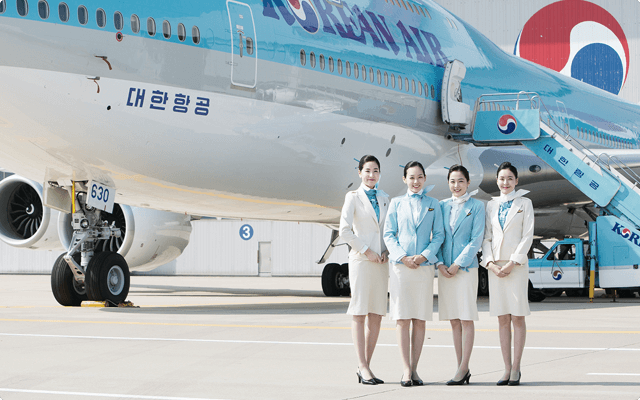In an era where air travel is constantly evolving, it’s not unusual to see airlines adapting to new regulations and safety standards. Korean Air has recently made headlines by announcing its unique approach to ensuring passenger and aircraft safety: the airline will weigh passengers and their baggage as part of a safety test taking place in August and September.
This forward-thinking initiative is in full compliance with regulations set by the Ministry of Land, Infrastructure, and Transport. The test will encompass both domestic and international flights, providing a comprehensive assessment of the airline’s commitment to safety. It’s important to note that passengers have the option to decline participation in the test by simply notifying an airline staff member.
According to a Korean Air official, “Korean Air passengers will be asked to step on scales with their carry-on items at each boarding gate.” It’s important to emphasize that the data collected during this process will be utilized solely for survey purposes and will not result in overweight passengers paying additional fees.
The test will be conducted during domestic flights from August 28 to September 6 at the Gimpo International Airport, followed by international flights from September 8 to September 19 at the Incheon International Airport. Korean Air’s commitment to safety is underscored by its adherence to the Ministry of Land, Infrastructure, and Transportation’s guidelines.
But why is this seemingly unconventional test necessary? The answer lies in the science of aviation. Aircraft weight and balance are crucial factors for the safe operation of flights. As the National Air and Space Museum explains, lighter aircraft require less engine power, use less fuel, and can travel longer distances. These factors translate directly into cost savings for airlines and a more eco-friendly approach to aviation.
Moreover, the weight of passengers and their baggage plays a significant role in the design and construction of aircraft. For airlines, every bit of weight saved during construction translates into increased payload capacity, allowing them to carry more luggage and passengers. Ultimately, this leads to higher profitability, making weight management a vital aspect of the aviation industry.
Korean Air’s decision to conduct this weight assessment aligns with a broader trend in the aviation industry. Earlier this year, Air New Zealand also undertook a similar initiative, prompted by Civil Aviation Authority requirements. These measures reflect the industry’s unwavering commitment to passenger safety and efficient flight operations.
Beyond its safety measures, Korean Air is renowned for its exceptional service and commitment to passenger satisfaction. As part of the SkyTeam Alliance, the airline is known for serving traditional Korean cuisine in-flight, with mouthwatering options like bibimbap and ssambap. Additionally, passengers can look forward to some of the most stylish amenity kits in the skies, showcasing Korean Air’s dedication to offering a premium travel experience.
In conclusion, Korean Air’s innovative approach to safety testing is a testament to the airline’s dedication to ensuring the highest standards of passenger safety and operational efficiency. As the aviation industry continues to evolve, such initiatives are vital in maintaining the industry’s impeccable safety record while also enhancing the passenger experience. So, next time you step onto a Korean Air flight, rest assured that your safety and comfort are their top priorities.



